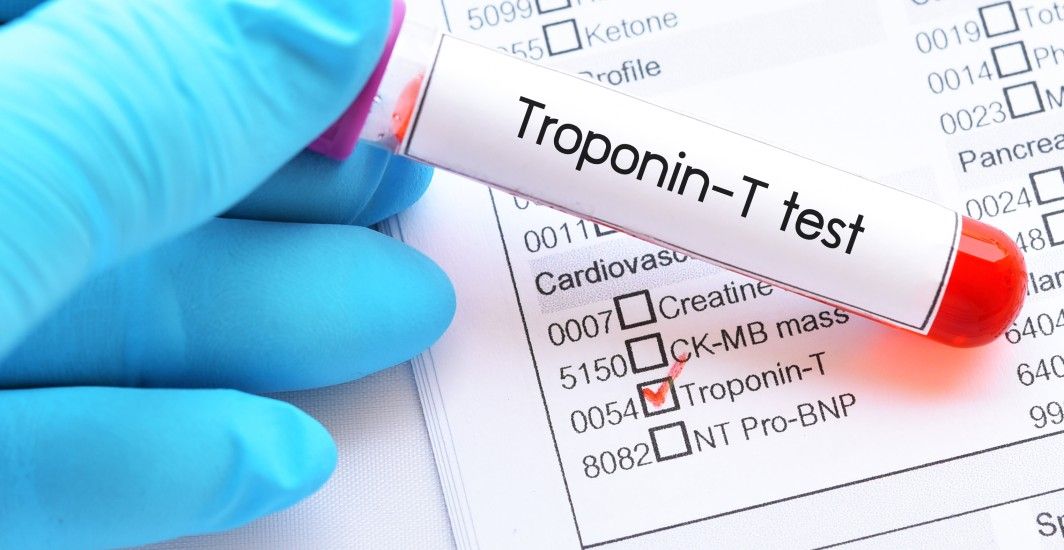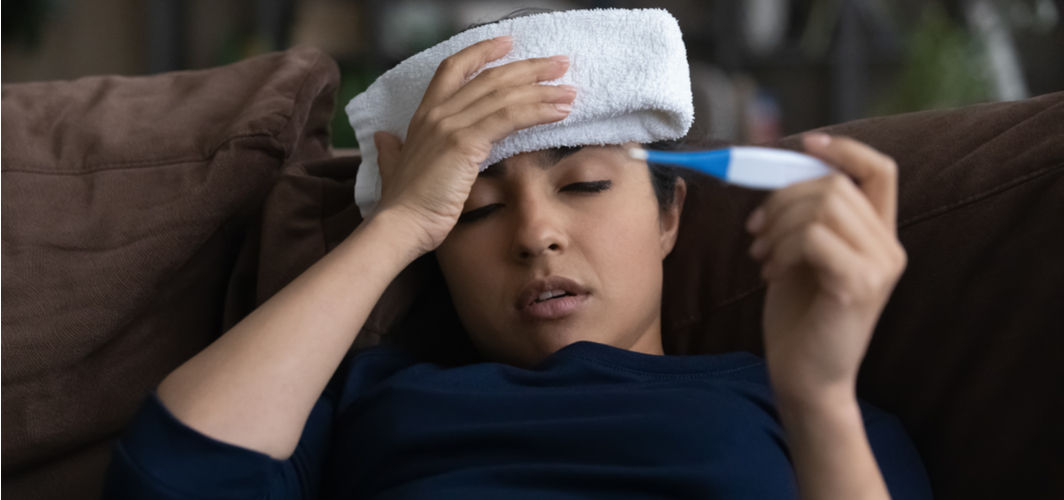General Health
Vitamins for Hair Growth and Thickness: Essential Nutrients for Fuller, Healthier Hair
6 min read
By Apollo 24|7, Published on - 20 February 2025, Updated on - 24 February 2025
Share this article
0
3 likes
.jpg?tr=q-80)
When it comes to maintaining healthy, thick hair, the nutrients you get from your diet play a key role. While genetics and other factors certainly impact hair growth, vitamins and minerals are essential to help your hair grow strong and healthy. In this guide, we'll explore the vital vitamins and minerals that support hair growth and thickness and offer some practical advice on how to ensure you’re getting enough of them in your diet.
Why Are Vitamins Important for Hair Health?
Healthy hair is more than just a cosmetic asset; it reflects your overall health. The strength and vitality of your hair are rooted in the nutrients you consume. When your body is deficient in essential vitamins and minerals, your hair follicles can't function optimally, leading to issues like thinning, slow growth, or even hair loss. Key nutrients, including vitamins, minerals, and fatty acids, play a vital role in nourishing hair follicles, supporting the hair growth cycle, and preventing damage.
Each strand of hair grows from a follicle in your scalp, which requires proper nourishment to produce healthy hair. While it's uncommon to experience hair loss solely due to vitamin deficiencies in developed countries, certain individuals—like menstruating women or those with limited sun exposure—may be more susceptible. It's important to recognise what your body needs and ensure you're getting the right vitamins for thick, healthy hair. Fortunately, many of these nutrients can be easily obtained through a balanced diet or affordable supplements.
Let's explore the specific vitamins known to boost hair growth and thickness.
Key Vitamins for Hair Growth
1.Biotin (Vitamin B7): For Healthy Hair Growth
Biotin is one of the most well-known vitamins for promoting hair health. It supports the production of keratin, a protein that makes up hair. A biotin deficiency can lead to hair thinning, but it’s very rare in healthy individuals with a normal diet.
Natural Sources:
- Biotin can be easily found in common foods like eggs, liver, oats, whole wheat cereals, vegetables, rice, and dairy products. So, it’s simple for most people to get enough biotin just by eating a balanced diet with these foods.
Recommended Daily Intake: - Although there’s no official recommended daily intake for biotin, around 30 mcg per day is typically enough to prevent a deficiency. Some hair loss specialists may recommend doses of up to 5,000 mcg for those experiencing hair thinning.
2.Vitamin D: Supporting Hair Follicles and Growth
Vitamin D is essential for your overall health and helps keep your hair follicles healthy. A lack of vitamin D can contribute to hair loss, though the exact connection to hair growth is still not fully clear. People living in areas with limited sunlight are more likely to have a vitamin D deficiency, and in these cases, taking vitamin D supplements can help improve hair health.
Natural Sources:
You can get vitamin D from foods like fortified milk, orange juice, fatty fish (like salmon), egg yolks, and mushrooms. However, the best way to get enough vitamin D is by spending some time in the sun, as your body naturally produces it when exposed to sunlight.
Recommended Daily Intake:
Experts recommend 2,000–5,000 IU per day for adults, but blood tests can help determine your exact needs. Severe deficiency may require prescription-strength vitamin D for short periods.
3.Vitamin A: Key to Healthy Hair Follicles
Vitamin A is crucial for cell growth, immune function, and maintaining healthy skin and hair follicles. It helps ensure that your scalp is nourished and your hair follicles function properly. While a deficiency in vitamin A is rare in developed countries, taking too much can lead to toxicity, which could negatively affect your hair health.
Natural Sources:
Vitamin A is found in foods like carrots, sweet potatoes, spinach, eggs, dairy, and liver. Since it's a fat-soluble vitamin, your body stores it in the liver, which means most people don’t need to worry about a deficiency. Just eating a variety of these foods can help you get enough vitamin A.
Recommended Daily Intake:
The recommended intake of Vitamin A is 900 micrograms of Retinol Activity Equivalents (mcg RAE) per day for men and 700 micrograms of Retinol Activity Equivalents (mcg RAE) per day for women.
4.Vitamin C: Strengthening Hair with Collagen
Vitamin C is essential for the production of collagen, which strengthens hair strands and promotes healthy growth. It also helps with the absorption of iron, another nutrient vital for hair health.
Natural Sources:
Vitamin C can be found in foods like citrus fruits (like oranges), bell peppers, tomatoes, spinach, and strawberries. These foods are easy to include in your diet and are packed with this important vitamin.
Recommended Daily Intake:
Adults should aim for 75–90 mg of vitamin C per day, with higher doses recommended for pregnant or breastfeeding women.
5.Vitamin E: Protecting Hair from Oxidative Stress
Vitamin E acts as an antioxidant, helping protect hair follicles from damage caused by oxidative stress, which can impact hair growth. Although its direct effect on hair growth is not well understood, adequate intake of vitamin E contributes to overall hair health.
Natural Sources:
Vitamin E is found in foods like nuts, seeds, avocados, and leafy greens. These are simple and healthy foods to add to your diet for a good dose of vitamin E.
Recommended Daily Intake:
The recommended intake is 15 mg (22.5 IU) per day for both men and women.
Key Minerals for Hair Growth
1.Iron: Vital for Oxygen Flow to Hair Follicles
Iron is essential for carrying oxygen to your hair follicles. A deficiency in iron can lead to hair loss, especially in women with heavy menstrual cycles or those who don’t consume enough iron-rich foods.
Natural Sources:
Iron is found in foods like meat, seafood, beans, lentils, spinach, tofu, quinoa, fortified cereals, and pumpkin seeds. For those following a vegan diet, plant-based sources like beans, lentils, tofu, spinach, quinoa, and pumpkin seeds are excellent options to help boost iron intake. Pairing these with vitamin C-rich foods (like citrus or bell peppers) can help enhance iron absorption.
Recommended Daily Intake:
The recommended amount for men and postmenopausal women is 8 mg per day, while premenopausal women need 18 mg per day.
2.Zinc: Supporting Hair Follicle Function
Zinc is involved in hair growth and repair. A deficiency in zinc can contribute to hair loss, especially in individuals with poor diets or certain medical conditions.
Natural Sources:
Zinc is found in foods like oysters, meat, fish, and nuts. If you’re following a plant-based diet, you can also get zinc from beans, lentils, seeds, and whole grains.
Recommended Daily Intake:
The recommended intake is 8 mg for women and 11 mg for men.
Conclusion
For most people, a balanced diet provides the vitamins and minerals needed for healthy hair growth. However, if you suspect a deficiency, a supplement may help, but it’s important to seek advice from a healthcare professional before starting any new regimen. Keep in mind that improving hair health takes time—results may take several months to show.
If you're experiencing hair loss, consider seeing a dermatologist or hair loss specialist to assess your health and explore treatment options. Vitamin supplements are often considered quick fixes for hair growth, but it’s important to approach them with caution. When choosing supplements, look for high-quality options that are supported by scientific research. Keep in mind that more isn’t always better—taking too many vitamins can actually be harmful. While supplements can help support hair health, they’re not a miracle cure. The most effective way to improve and maintain healthy hair is by adopting a holistic approach, including a balanced diet, proper hair care, and a healthy lifestyle.
General Health
Leave Comment
Recommended for you

General Health
Troponin Test: A Test To Rule Out Heart Damage
Worried about chest pain or breathlessness? Learn how the Troponin Test detects heart muscle damage, helps diagnose heart attacks, and guides urgent cardiac care.

General Health
Is Your Monsoon Fever a Sign of Typhoid?
High fever is one of the early signs of typhoid. Since it can easily be mistaken for ordinary fever, it is important to remain alert to the other major symptoms of typhoid.
.jpg?tr=q-80)
General Health
Blood Urea Test - Normal Range, Purpose, Procedure And Results Interpretation
Get detailed insights into the Blood Urea Test, including its normal range, purpose, procedure, and how to interpret results to assess kidney function and overall health.
Subscribe
Sign up for our free Health Library Daily Newsletter
Get doctor-approved health tips, news, and more.
Visual Stories

Science-backed Home Remedies for Burns and Blisters
Tap to continue exploring
Recommended for you

General Health
Troponin Test: A Test To Rule Out Heart Damage
Worried about chest pain or breathlessness? Learn how the Troponin Test detects heart muscle damage, helps diagnose heart attacks, and guides urgent cardiac care.

General Health
Is Your Monsoon Fever a Sign of Typhoid?
High fever is one of the early signs of typhoid. Since it can easily be mistaken for ordinary fever, it is important to remain alert to the other major symptoms of typhoid.
.jpg?tr=q-80)
General Health
Blood Urea Test - Normal Range, Purpose, Procedure And Results Interpretation
Get detailed insights into the Blood Urea Test, including its normal range, purpose, procedure, and how to interpret results to assess kidney function and overall health.